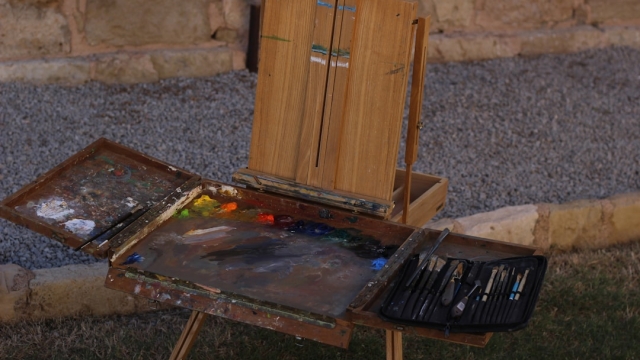Overview of Art Mentorship Programs
Art is a powerful medium of expression, and for many aspiring artists, navigating the complex world of creativity can be daunting. This is where art mentorship programs come into play, providing invaluable guidance and support. These programs connect emerging artists with experienced mentors who can help refine their skills, broaden their perspectives, and navigate their artistic journeys. In this article, we will explore the essence of art mentorship programs, how to apply, their benefits, a review of popular options, and inspiring success stories from participants.
Overview of Art Mentorship Programs
Art mentorship programs are structured initiatives designed to foster the growth of artists through one-on-one guidance and support. These programs typically pair artists at various stages of their careers with seasoned professionals in their field. The relationship is built on sharing knowledge, providing constructive feedback, and encouraging artistic exploration. Mentorship can take many forms, including workshops, studio visits, portfolio reviews, and professional development sessions, all aimed at nurturing the next generation of artists.
How to Apply for Art Mentorship Programs
Applying for art mentorship programs often involves several key steps. First, artists should research available programs that align with their artistic goals and mediums. Each program may have specific requirements, such as a portfolio submission, a statement of purpose, or recommendations from other artists or educators.
Once an artist identifies a suitable program, they should carefully prepare their application materials. A well-curated portfolio showcasing a range of work and a compelling narrative about their artistic journey can significantly enhance their chances of acceptance. Applications are typically reviewed by program coordinators and mentors, who select candidates based on their potential and commitment to growth. Finally, upon acceptance, artists can look forward to engaging in a transformative mentorship experience.
Benefits of Participating in Art Mentorship Programs
Participating in art mentorship programs can lead to numerous advantages for artists. One of the most significant benefits is personalized guidance from experienced mentors who provide tailored feedback and support. This mentorship can help artists improve their technical skills, explore new mediums, and develop a unique artistic voice.
Additionally, these programs often facilitate networking opportunities, connecting artists with industry professionals, galleries, and other creatives. This expanded network can open doors for exhibitions, collaborations, and career advancements. Furthermore, being part of a mentorship program can instill a sense of accountability and motivation, encouraging artists to push their boundaries and achieve their goals.
Comparative Review of Popular Art Mentorship Programs
Several art mentorship programs stand out for their unique approaches and offerings. For instance, some programs focus on specific mediums, such as painting or digital art, while others may offer a broad range of artistic disciplines. It is essential for artists to consider what they are seeking in a mentorship experience.
Programs like Cozy Artland emphasize community engagement and collaboration, while others might focus on individual development through intensive workshops. Some programs are geared towards specific demographics, such as underrepresented artists or those pursuing social change through their art. By comparing these options, artists can find a program that aligns with their personal goals and artistic vision.
Success Stories from Art Mentorship Participants
Success stories from past participants of art mentorship programs often serve as a source of inspiration. Many artists have reported significant growth in their work and confidence after receiving mentorship. For example, an emerging painter may have transformed their artistic style through constructive criticism and guidance, leading to their first gallery exhibition.
Others may have leveraged their mentorship experience to build relationships within the art community, resulting in collaborative projects or even launching their own initiatives. These narratives highlight the profound impact that mentorship can have, not just on an artist’s craft, but on their overall career trajectory.
In conclusion, art mentorship programs provide a vital resource for artists seeking to grow and develop their skills. By connecting with experienced mentors, artists can receive personalized guidance, expand their networks, and find inspiration on their creative journeys. Whether you are an emerging artist or looking to refine your practice, exploring available mentorship opportunities can significantly enhance your artistic path.

